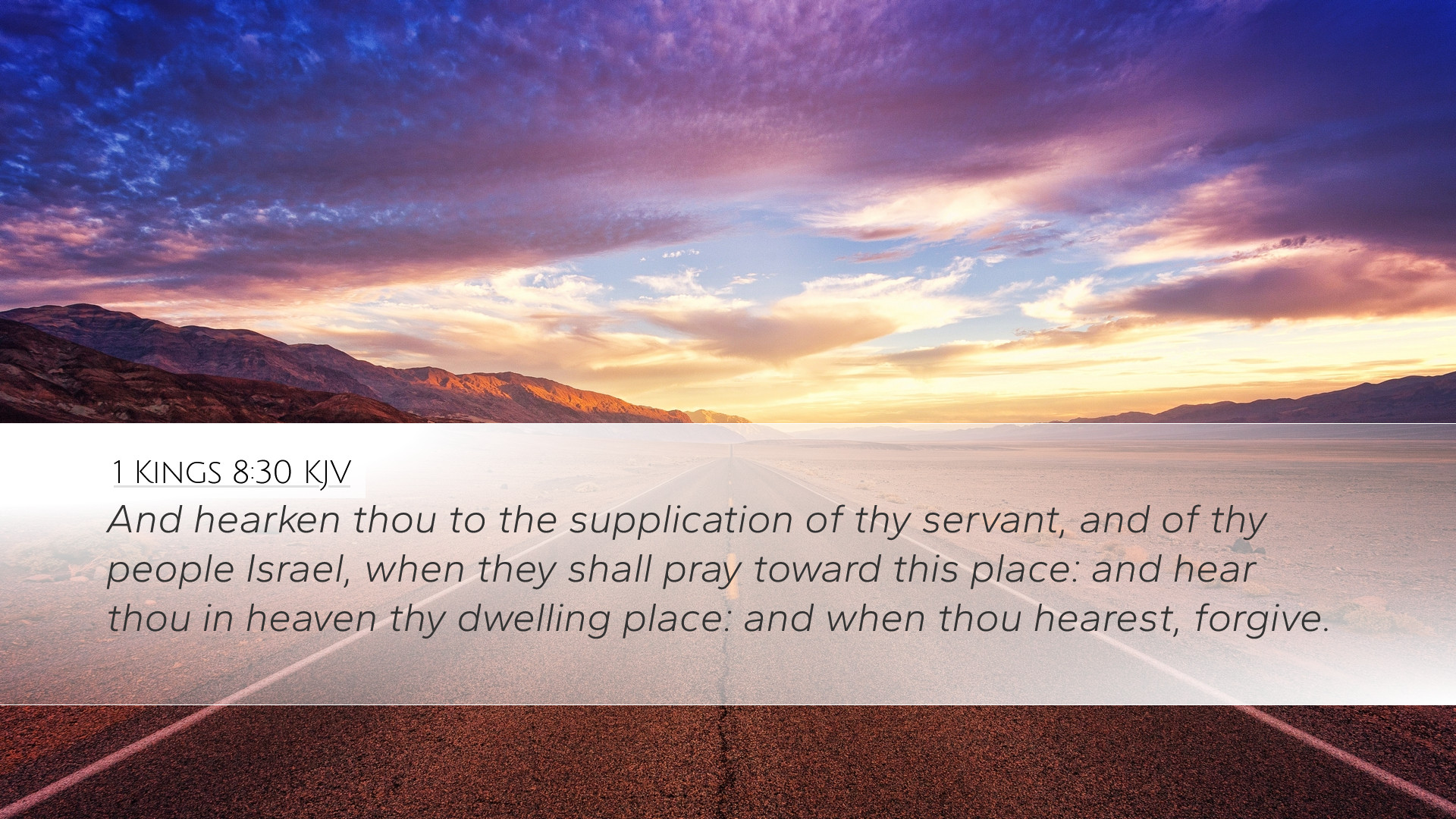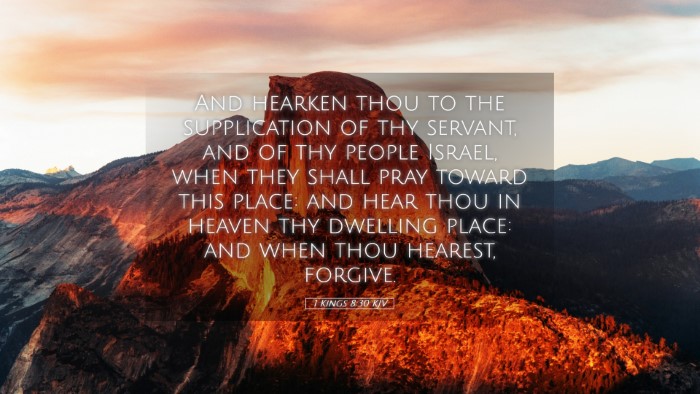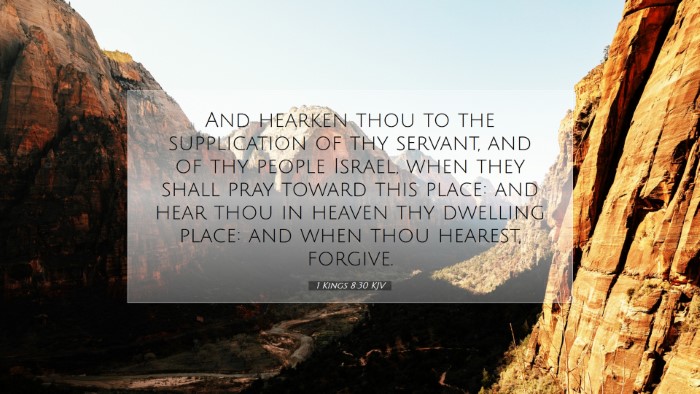Comprehensive Commentary on 1 Kings 8:30
Verse: "And hearken thou to the supplication of thy servant, and of thy people Israel, when they shall pray toward this place: and hear thou in heaven thy dwelling place: and when thou hearest, forgive."
Contextual Overview
This verse is part of Solomon's dedication of the Temple, a significant event in Israel's history. Solomon, after completing the Temple, addresses God in prayer, emphasizing the importance of the Temple as a place where God's presence dwells and where the people may direct their prayers.
Theological Reflection
The central theme in this passage is the relationship between prayer and God's dwelling place. Solomon's prayer indicates a belief that God can hear the prayers of His people, even when they are far from the Temple. This reflects a broader theological understanding that God is omnipresent and hears the cries of His people from anywhere.
Insights from Public Domain Commentaries
Matthew Henry's Commentary
Matthew Henry emphasizes the significance of prayer directed toward the Temple as a means of seeking God's favor and forgiveness. He notes that the Temple represents a physical locus where heaven meets earth and acknowledges that Solomon's prayer is an appeal to God's mercy.
Henry also highlights the profound connection between Israel's collective identity and their communal prayers. He states that the plea for God to “hearken” underscores the necessity of being attentive to the needs of the people.
Albert Barnes' Notes
Albert Barnes provides a detailed analysis of the structure of Solomon’s prayer. He points out that when Solomon prays "hearken" and "hear," he is not merely asking for God’s attention but is also affirming the assurance that God is responsive to the prayers of His people.
Barnes emphasizes the duality of God’s nature as both transcendent and immanent, noting that while God is in heaven, He is still accessible to His people through prayer. This theology serves to encourage the faithful to approach God with confidence, knowing that their requests are received with compassion.
Adam Clarke's Commentary
Adam Clarke provides a nuanced interpretation of the prayer's context. He discusses how the phrase “this place” signifies the Temple as a central point of worship and intercession for Israel. Clarke asserts that prayers directed toward the Temple symbolize a heart aligned with God’s purpose for His people.
Furthermore, Clarke remarks on the implications of "forgive" in the context of Israel's sin and restoration. He posits that Solomon's acknowledgment of human frailty points toward God's grace and the necessity of repentance, encouraging believers to seek forgiveness earnestly.
Practical Application
This passage holds practical significance for leaders and congregants alike. It underscores the importance of prayer as both a personal and communal activity that fosters a deeper connection to God. Soloman's prayer reminds the faithful of the assurance that no matter where they are, they can approach God with their supplications.
- Prayer Life: Individuals are encouraged to cultivate a robust prayer life, seeking God’s guidance and forgiveness in their daily interactions.
- Community Focus: Church leaders should emphasize the role of corporate prayer in their worship services, reflecting the communal nature of Solomon's dedication.
- Forgiveness and Repentance: Pastoral teachings should motivate believers to regularly acknowledge their need for forgiveness, fostering a culture of grace and accountability.
Conclusion
In summary, 1 Kings 8:30 encapsulates the heart of Solomon’s prayer and highlights key theological truths regarding God’s responsiveness to prayer, the significance of communal worship, and the necessity for believers to seek God’s forgiveness. The insights drawn from Matthew Henry, Albert Barnes, and Adam Clarke provide a rich commentary that resonates deeply with contemporary faith practices.


